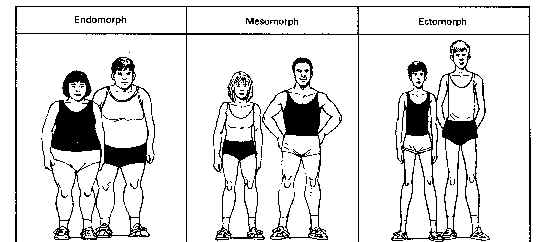Biological
and Psychological Theories of Deviance
(these
ideas drawn from Goode, 1994-2008 chapter 2; and Pfohl, Images of Deviance
and Social Control, 1985. See the disclaimer)

Biological
Positivism
(Pathological
Theories)
(these
ideas are drawn from Pfohl, Images of Deviance and Social Control,
1985)
(Essentialism)
(Deterministic)

- Shift from badness==>Sickness
- Common sense today
- Deterministic causation
vs Chosen
- Deviance produced
by disease/defect (very attractive to historical and modern audiences)
- Control==>Cure,
treatment
- Shifts focus away
from act and back to Actor

- Search for the variables
that cause deviance
- Deviance as an Objective
Reality
- Forces of nature
(Evolutionary Theory-1859)

Phrenology
(from: the Skeptic's Dictionary)
- Evolutionary development
of Brain: 3 areas that related to/determined behavior
- openness-secretiveness
- acquisitiveness-generosity
- eroticism

Benjamin
Rush (1812: First American Text on psychiatry)
- Mental Disorder==>arterial
disease of brain==>caused:
- Lying
- Crime
- "Revolutiona"
(opposition to the American Revolution)



1939: Earnest
Hooton: "The American Criminal"
- "Organic weakness"
(low foreheads, compressed faces, etc)
- Question: the (social)
meaning of physical inferiority?????

1949: William
Sheldon: "Varieties of Delinquent Youth"
- Endoderm: digestive
system
- Ectoderm: skin and
nervous system
- Mesoderm: bones,
muscles
- Normal==>balanced
development, normal personality
- Imbalance: problems==>personality
"defects"
Somatotypes:
- Endomorph: fat,
round--Psych: luxury, sloth, consumption.
- Ectomorph: frail,
skinny, gangly--Psych: introverts, cunning, stealth.
- Mesomorph: large,
strong, hard--Psych: active, dynamic, assertive, forceful.

picture
from: http://learningat.ke7.org.uk/peweb/5thlesson/sports&pe/somatotyping.htm

- Study-200 boys,
Hayden Goodwill Institute. 7 point somotyping scale, 650 psychological attributes.
Disproportionately mesomorphic--more prone to delinquency.
- Sheldon and Eleanor
Glueck (1950's): 800 adjudicated delinquents/matched sample of non-delinquents==>
delinquents more likely to be mesomorphs.
- Questions/Problems:
- Maybe need a tough
body to gain acceptance/survive on the streets.
- Body type and social
meaning--the boys were already judged to be delinquent.

Heredity
- "The
Jukes" by Dugdale (1877): 180 of 700 family members--welfare, 140--criminals
- "The
Kallikaks" by Goddard (1912): Martin and "feebleminded barmaid
vs Martin and "good, normal" girl. (See, Plucker, J. A. (Ed.).
(2003). Human intelligence: Historical influences, current controversies,
teaching resources. Retrieved July 6, 2015, from http://www.intelltheory.com/goddard.shtml)(see
also: The Kallikak Family:
A Study in the Heredity of Feeble-Mindedness, Henry Herbert
Goddard (1913) put online by: Classics in the History of Psychology,
Christopher D. Green, York University, Toronto, Ontario)
- Wikipedia article
on the Jukes
and the Kallikaks

IQ
- Low IQ as a cause
of criminality. Feebleminded unable to cope with complex social conditions.
Compared WWI recruits with prisoners: 47% of recruits vs 20% of prisoners!!!?
- IQ and deviance--relevance
of tests, social class and opportunity, schooling and expectations.
- IQ and studies of
Delinquency: School performance

- Twins/Adoptees:
1/3 correlation with birth father, but adopted father explains even more.
- Concordance between
identical twins high, but far from perfect.
- Little attention
to mother's behavior.

XYY Chromosomes:
- Only 1/1,800-3,000
possess
- No firm link except
to tallness.

Bio-Social
Theory
- Variety of causes:
Allergies, Hormones, Organic Brain Syndrome, ADD, etc.
- Environmental factors
trigger response

Psychological
Theories

Psychodynamic
- Id-Ego-Superego--problem
of imbalance.
- Oral-Anal and Phallic
Stages--Fixation
- Repression

- Identity versus
Role Confusion--adolescence
- Identity diffusion:
excessively self-conscious, overly concerned with sexuality
- Identity foreclosure:
problem of unfulfilled expectations
- Negative identity:
(objected to by others)- rebel to be noticed

Behavioralism
- Environmental reinforcement
- Stimulus/response
- Eysenck: Problem
of permissive child rearing
- Skinner: Operant
conditioning: Reward structures
- Strong link to Classical
Theory and Modern day Deterrence Theories

Learning
Theories
- "Social
Learning Theory" (psychological social learning)
- Anticipation of
positive responses
- Gear behavior in
order to be accepted
- Modeling
- Television and violence

Moral Development
- Stages of Development:
Kohlberg
and Piaget
- Problem solving
- Situation specificity

Predictability
and Problems:
- MMPI: view deviance
as positive, reject authority--causes or responses?
- Defining the "Psychopath"
- ADD and social meanings
- General Sociological
Concerns with psycho-dynamic Theories
- Circularity--if
behavior, then "impulse." Proof? Accounts for everything.
- Sample size
typically limited and skewed
- Replaces one
unseeable force (supernatural) with another ("impulses," "predispositions,"
genes)
- General Difficulties
with biological and psychological theories:
- ? Of neutrality--acts
accepted as deviant.
- Straight normative,
wrong by nature
- ? of street
vs. elite deviance
- Individualizes
complex social issues
- Assumptions
about normalcy--who and what is normal, exactly?
- Expert careers?
- Politics of
Good and Evil

Issues:
- Eugenics
- Psycho-surgery
- Mental Hospitals
- Psychopharmacology
- Medicalization
of Deviance
![]()
![]()
![]()
![]()
![]()
![]()

![]()
![]()

![]()
![]()
![]()
![]()
![]()
![]()
![]()
![]()
![]()
![]()
![]()
![]()
![]()
![]()
![]()